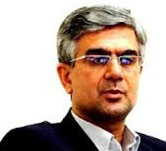Evaluation the frequency of the IGF2 ApaI polymorphism in Iranian elite judo athletes
Individuals ability are different for achieving to success in sports disciplines and most of this differences are related to genetic factors. Finding genetic structures that effect on athletic performance is an important step in developing methods related to talent identification. Judo athletes for being successes in this discipline need to high levels of strength and power. The previous investigations revealed the insulin-like growth factor (IGF2) is associated with body mass index, fat-free mass, hand grip strength and leg strength.
The aim of the present study was to evaluate the possible association between ApaI IGF2 and judo status. The athlete group includes 40 elite judo athletes who had medals in Asian and World championship and control group comprised of 120 health non-athletes men.
DNA was extracted from the peripheral blood using a non-enzymatic method and Genotyping was conducted by PCR method for identifying the IGF2 ApaI polymorphism. The distribution frequency of this polymorphism was determined by chi-square analysis.
There were no significant differences in genotype and allele frequency of the judo athletes compared with control.
The result of the present study revealed IGF2 ApaI polymorphism due to the influence of judo discipline from different factors and no relying completely on a single factor (such as strength or endurance) may have no effect in judo status in elite Iranian judo athletes.
-
The role of olfactory sensory neurons in improving working memory following aerobic exercise training in adult male rats
Farzaneh Zeynali, Mohammad Shariatzadeh Joneydi *, Jalaledin Noroozi, , Mohammad Reza Raoufy
Sport Physiology, -
The role of neurotransmitters (serotonin and dopamine) in central nervous system fatigue during prolonged exercise
, Leila Fasihi *
Journal of New Approaches in Exercise Physiology, Winter and Spring 2023


